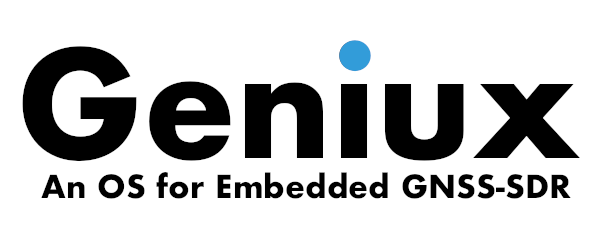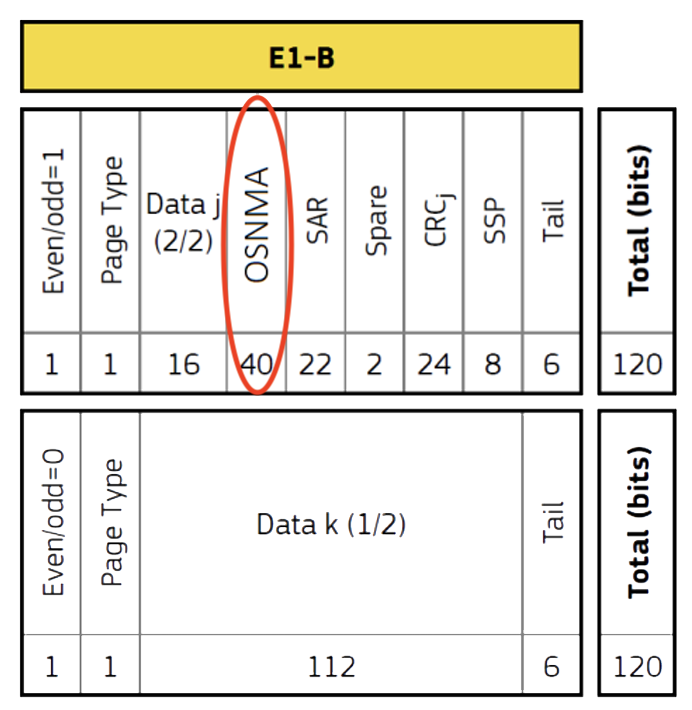GNSS-SDR v0.0.11 released
This release has several improvements in different dimensions, addition of new features and bug fixes:
Improvements in Accuracy:
- Local clock correction based on PVT solution, allowing the delivery of continuous observables.
- Fix a bug in broadcast ionospheric parameters usage.
Improvements in Availability:
- Improved mechanism for false lock detection in the Tracking loops.
- Fixed bug in Galileo INAV/FNAV message decoding when PLL is locked at 180 degrees, which prevented from correct navigation message decoding in some situations.
- Fixed bug that caused a random deadlock in the Observables block, preventing the computation of PVT fixes.
- Fixed PVT computation continuity through the TOW rollover.
- Improved signal acquisition and tracking mechanisms in high dynamic scenarios.
Improvements in Efficiency:
- Added mechanism for assisted acquisition of signals on a secondary band when the primary has already been acquired. This allows a great reduction of the computational load in multi-frequency configurations.
- Tracking loops now perform bit synchronization, simplifying the decoding process in Telemetry blocks and FPGA-offloading.
- Improved preamble detection implementation in the decoding of navigation messages (acceleration by x1.6 on average per channel).
- Shortened Acquisition to Tracking transition time.
- Applied clang-tidy checks and fixes related to performance: performance-faster-string-find, performance-for-range-copy, performance-implicit-conversion-in-loop, performance-inefficient-algorithm, performance-inefficient-string-concatenation, performance-inefficient-vector-operation, performance-move-const-arg, performance-move-constructor-init, performance-noexcept-move-constructor, performance-type-promotion-in-math-fn, performance-unnecessary-copy-initialization, performance-unnecessary-value-param, readability-string-compare.
Improvements in Flexibility:
- Rewritten Control Thread and GNSS flow graph for increased control of channels’ status and smarter assignation of satellites in multi-band configurations.
- New Tracking parameters allow the configuration of PLL and DLL filters order.
- Added parameter to enable FLL during pull-in time.
- Configurable pull-in time in the Tracking loops.
Improvements in Interoperability:
- Added the BeiDou B1I and B3I receiver chains.
- Fix bug in GLONASS dual frequency receiver.
- Added a custom UDP/IP output for PVT data streaming.
- Improved Monitor block with UDP/IP output for internal receiver’s data streaming.
- Custom output formats described with .proto files, making easier to other applications reading them in a forward and backward-compatible fashion upon future format changes. New dependency: Protocol Buffers >= 3.0.0
- Fixes in RINEX generation: week rollover, annotations are not repeated anymore in navigation files. Parameter rinexnav_rate_ms has been removed, annotations are made as new ephemeris arrive.
- Fixes in RTCM messages generation: week rollover.
Improvements in Maintainability:
- The internal communication mechanism based on gr::msg_queue has been replaced by a thread-safe, built-in asynchronous message passing system based on GNU Radio’s Polymorphic Types. This change is backwards-compatible and prevents from a failure in case of a possible future deprecation or removal of the gr::msg_queue API.
- Deprecated boost::asio::io_service replaced by boost::asio::io_context if Boost > 1.65
- CMake turns all policies to ON according to the running version up to version 3.15.
- Usage of clang-tidy integrated into CMake scripts. New option -DENABLE_CLANG_TIDY=ON executes clang-tidy along with compilation. Requires clang compiler.
- Applied clang-tidy checks and fixes related to readability: readability-container-size-empty, readability-identifier-naming, readability-inconsistent-declaration-parameter-name, readability-named-parameter, readability-non-const-parameter, readability-string-compare.
- Improved includes selection following suggestions by include-what-you-use, allowing faster compiles, fewer recompiles and making refactoring easier.
- Massive reduction of warnings triggered by clang-tidy checks.
- Throughout code cleaning and formatting performed with automated tools in order to reduce future commit noise.
Improvements in Portability:
- Added interfaces for FPGA off-loading in GPS L1 C/A, Galileo E1b/c, GPS L2C, GPS L5 and Galileo E5a receiver chains.
- CMake scripts now follow a modern approach (targets and properties) but still work with 2.8.12.
- Improvements for macOS users using Homebrew.
- The software builds against GNU Radio >= 3.7.3, including 3.8.0. Automatically detected, no user intervention is required.
- The volk_gnsssdr library can now be built without requiring Boost if the compiler supports C++17 or higher.
- The Boost Filesystem library is not anymore a required dependency in cases where it can be replaced by std::filesystem. Automatically detected, no user intervention is required.
- CMake scripts automatically select among C++11, C++14, C++17 or C++20 standards, the most recent as possible, depending on compiler and dependencies versions.
- Drawback in portability: Protocol Buffers >= 3.0.0 is a new required dependency.
Improvements in Reliability:
- Included the Guidelines Support Library. General improvement of memory management, replacement of raw pointers by containers or smart pointers.
- Applied clang-tidy checks and fixes related to High Integrity C++: performance-move-const-arg, modernize-use-auto, modernize-use-equals-default, modernize-use-equals-delete, modernize-use-noexcept, modernize-use-nullptr, cert-dcl21-cpp, misc-new-delete-overloads, cert-dcl58-cpp, cert-err52-cpp, cert-err60-cpp, hicpp-exception-baseclass, hicpp-explicit-conversions.
- Fixed a number of defects detected by Coverity Scan (version June 2019).
Improvements in Usability:
- The receiver now admits FPGA off-loading, allowing for real-time operation in embedded systems at high sampling rates and high number of signals and channels per signal in multiple bands.
- Fixed program termination (avoiding hangs and segfaults in some platforms/configurations).
- The Labsat_Signal_Source now terminates the receiver’s execution when the end of file(s) is reached. It now accepts LabSat 2 filenames and series of LabSat 3 files.
- Added configuration parameters to set the annotation rate in KML, GPX, GeoJSON and NMEA outputs, set by default to 1 s.
- New parameter PVT.show_local_time_zone displays time in the local time zone. Subject to the proper system configuration of the machine running the software receiver. This feature is not available in old compilers.
- CMake now generates a summary of required/optional dependency packages found and enabled/disabled features. This info is also stored in a file called features.log in the building directory.
- Improved information provided to the user in case of building configuration and runtime failures.
As usual, compressed tarballs are available from GitHub and Sourceforge.
In order to make GNSS-SDR more easily referenced, and to promote reproducible research, each software release gets a Digital Object Identifier provided by Zenodo. The DOI for GNSS-SDR v0.0.11 is 10.5281/zenodo.3359989.



